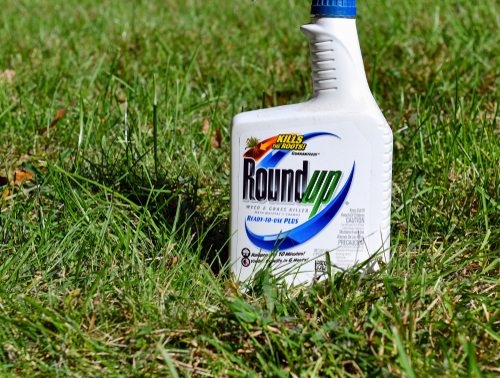The Real Purpose of Gov’t Oversight
Joel Salatin|December 29, 2021

Editor’s Note: Investors are warned time and again to “do our due diligence” when it comes to determining where we invest our money… but when it comes to food, we’re expected to trust that the government has our best interests at heart. As Joel Salatin says below, yeah, right. Read on for what’s really behind all the rules, regulations and licenses around our food. You’ll be better informed – and more empowered – the next time you head down the grocery aisle.
There’s an ongoing legal battle between Bayer and more than 50,000 plaintiffs who allege that their cancer was caused by glyphosate (the primary ingredient in the herbicide Roundup, which Bayer acquired in 2018). The defense rests its case on government oversight.
Bayer’s legal position is that since the Environmental Protection Agency stamped its approval on the herbicide, the private company is no longer liable for its side effects.
Absolving responsibility, whether personal or corporate, is the unseen goal of government oversight.
Most Americans have been duped into thinking that licensing, standards and oversight are about safety and protection. That is certainly the message both the government and businesses want you to believe. Both spend a great deal of time and money spreading that notion.
But in reality, government oversight usually creates ignorance on the consumer end… and irresponsibility on the business end… while not doing what folks think it does.
The food scene provides some good examples.
A Prime Choice
The grading system for beef – prime, choice, select – has nothing to do with safety, nutrition or taste. It simply measures fat content. It was developed a century ago to identify beef that would provide enough tallow for making candles.
Until very recently, grain was expensive because it was hard to plant, harvest, store and transport. Fattening up cattle was extremely difficult. Some even called it an art form.
And prior to the widespread availability of electricity, in-house lighting came from candles and oils. The animal-oil economy drove livestock prices, and beef tallow was the benchmark.
So the grading system offered a way for buyers to know whether an animal would yield lots of burnable fat. Most Americans, when asked about these beef grades, assume they have something to do with nutrition, taste or safety. But they don’t.
Grade-A Problem
Another good example is eggs. What scares people about eating eggs? You’d be right to say salmonella. The triumvirate of salmonella, E. coli and campylobacter are hideous pathogens most often seen in poultry and poultry products, including eggs.
Most folks assume, then, that when a carton of eggs proclaims, “Grade A,” it says something about those three concerns. It doesn’t.
Government egg-grading does not address anything relating to whether an egg could make you sick. It addresses whether the egg is cracked (even a hairline crack imperceptible to the human eye counts as a crack) and other such cosmetic matters. It doesn’t address food safety or nutrition.
To be a Grade A egg, it can’t be cracked or misshapen or have calcium spots on its shell, and it must have viscous density and an air cell no larger than a dime. None of which has anything to do with the three big disease-causing safety factors.
And yet consumers, for the most part, assume that the stamp indicates some sort of protective oversight… and that they can buy the eggs worry-free.
Rather than taking the personal responsibility to “know their farmer, know their food,” consumers put their faith in a license that has nothing to do with their fears.
Familiar with consumer behavior and the toothless reality of government oversight, producers often feel permission to be less careful about their protocols. After all, aren’t they covered by the license?
That brings us to the court battle looming over glyphosate.
Have No Faith
The political pressure on regulators to play along with corporate interests is intense and immense. Anyone who thinks regulators are the authority over truth and protection is putting far too much faith in them.
In reality, regulation involves a lot of checked boxes and forms with clever wording and confusing language that provide a sense of protection without really doing any protecting.
The collusion and politics involved should give us all pause whenever a corporate executive hides behind the skirts of regulators and says, “We have complied with all applicable safety regulations.”
Yeah, right.
Note: Tomorrow’s the LAST DAY to claim a special charter membership in Alpesh Patel’s GVI Investor. If you want to put yourself on the smart path to a richer, fuller life – one where you live by your own rules – click here now.

Joel Salatin
Joel Salatin calls himself a Christian libertarian environmentalist capitalist lunatic farmer. Others who like him call him the most famous farmer in the world, the high priest of the pasture, and the most eclectic thinker from Virginia since Thomas Jefferson. Those who don’t like him call him a bioterrorist, Typhoid Mary, a charlatan, and a starvation advocate. With a room full of debate trophies from high school and college days, 12 published books, and a thriving multigenerational family farm, he draws on a lifetime of food, farming and fantasy to entertain and inspire audiences around the world.



